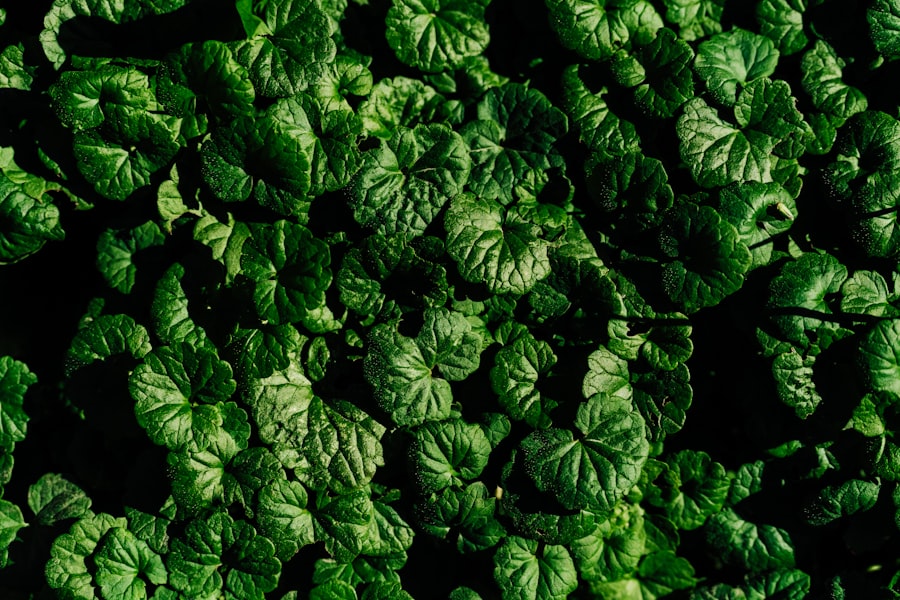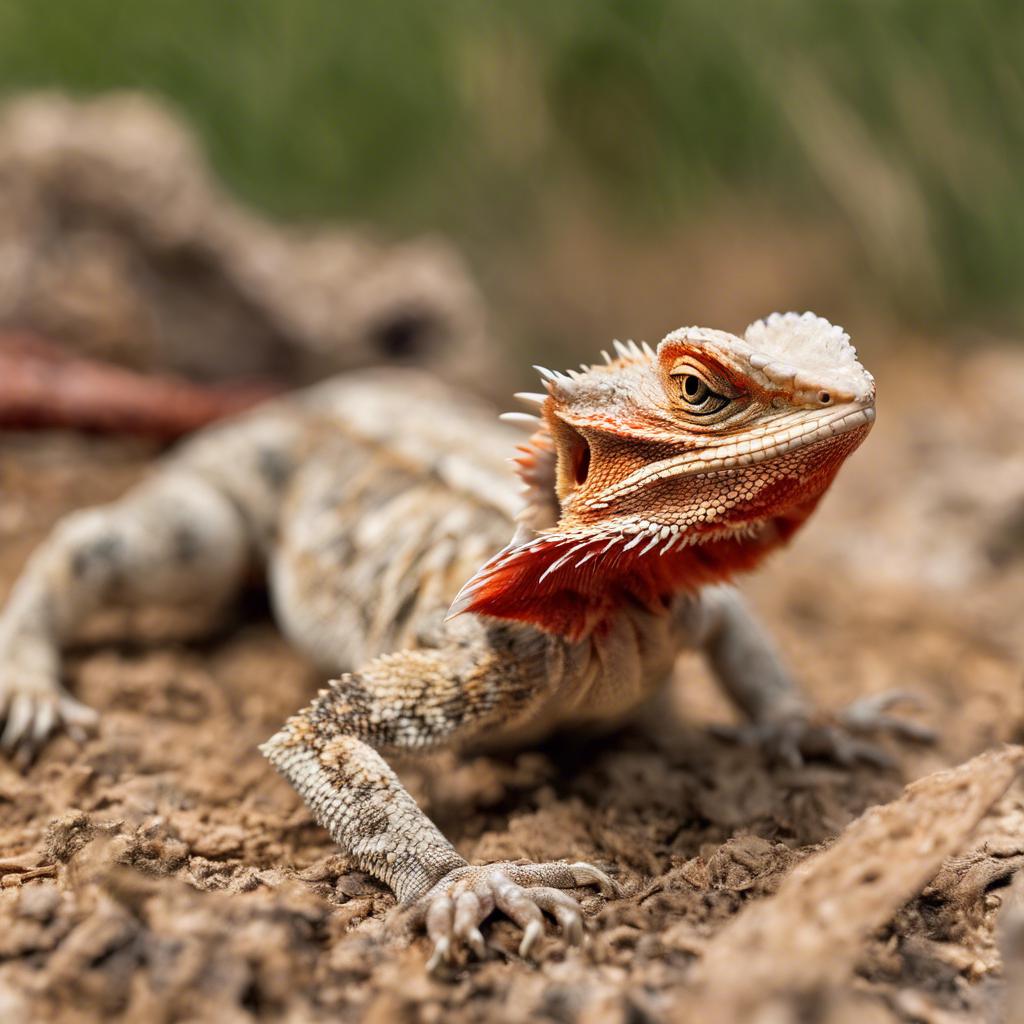Bearded dragons are popular reptile pets known for their unique appearance and docile nature. These reptiles require specific care and a well-balanced diet to thrive in captivity. Providing a nutritious diet is crucial for their overall health and well-being. In this article, we will explore the benefits of incorporating red worms into a bearded dragon's diet, as well as discuss the proper care and precautions to take when feeding them.
Key Takeaways
- Bearded dragons require a balanced diet for optimal health and well-being.
- Red worms are a type of live food that can be fed to bearded dragons.
- Red worms are high in protein and other essential nutrients that bearded dragons need.
- To feed red worms to bearded dragons, they should be gut-loaded and dusted with calcium powder.
- While red worms are a safe and nutritious food option for bearded dragons, it's important to feed them in moderation and consider other factors in their care.
What are Red Worms?
Red worms, also known as red wigglers or Eisenia fetida, are a type of earthworm commonly used as live food for reptiles and other animals. They are smaller in size compared to nightcrawlers and have a reddish-brown color. Red worms can be found in organic matter such as compost piles, manure, or decaying vegetation. They are also available for purchase at pet stores or online suppliers.
When it comes to storing red worms, it is important to keep them in a cool and dark environment to prevent them from drying out or overheating. A container with moist bedding material such as peat moss or shredded newspaper can provide a suitable habitat for the worms. It is essential to regularly check the moisture levels and add water if necessary to maintain the proper humidity.
Nutritional Value of Red Worms for Bearded Dragons
Red worms are highly nutritious and offer several health benefits for bearded dragons. They are an excellent source of protein, which is essential for growth, muscle development, and overall body function. Protein makes up a significant portion of a bearded dragon's diet, and red worms provide a high-quality protein source.
In addition to protein, red worms also contain a moderate amount of fat. While fat should be consumed in moderation, it is an important energy source for reptiles. The fat content in red worms helps provide the necessary calories for bearded dragons to maintain their energy levels and support their metabolic functions.
Calcium and phosphorus are two crucial minerals that must be balanced in a bearded dragon's diet. Red worms have a favorable calcium to phosphorus ratio, making them an ideal food source for these reptiles. Calcium is essential for bone health and proper muscle function, while phosphorus aids in digestion and metabolism. The balanced ratio of these minerals in red worms helps prevent metabolic bone disease, a common health issue in bearded dragons.
Red worms also contain other essential vitamins and minerals, including iron, magnesium, potassium, and vitamin B12. These nutrients contribute to various bodily functions, such as oxygen transport, nerve function, and immune system support.
How to Feed Red Worms to Bearded Dragons
Before feeding red worms to your bearded dragon, it is important to prepare them properly. Start by rinsing the worms with water to remove any dirt or debris. You can also gut-load the worms by feeding them nutrient-rich foods such as fruits or vegetables before offering them to your pet. This will enhance the nutritional value of the worms.
The amount of red worms to feed your bearded dragon depends on its size and age. As a general guideline, offer a few worms at each feeding session. It is important not to overfeed your pet as this can lead to obesity and other health issues. Monitor your bearded dragon's weight and adjust the portion size accordingly.
Feeding frequency also varies depending on the age of your bearded dragon. Younger dragons require more frequent feedings compared to adults. Generally, offer red worms as a treat or supplement to their regular diet of vegetables and insects. It is recommended to feed adult bearded dragons 2-3 times per week, while younger dragons may require daily feedings.
Red Worms vs. Other Live Foods for Bearded Dragons
When it comes to feeding bearded dragons, there are several live food options available, including crickets, mealworms, and dubia roaches. Each type of live food has its own advantages and disadvantages.
Red worms offer a high protein content, making them an excellent choice for bearded dragons. They are also easy to digest and provide a good source of calcium. Additionally, red worms are small in size, making them suitable for younger bearded dragons or those with smaller appetites.
Crickets are another popular live food option for bearded dragons. They are readily available and provide a good source of protein. However, crickets can be noisy and may escape from their enclosure if not properly contained. They also require additional care and maintenance compared to red worms.
Mealworms are another common choice for bearded dragon owners. They are easy to find and can be stored for longer periods. However, mealworms have a higher fat content compared to red worms and should be fed in moderation.
Dubia roaches are gaining popularity as a live food option for bearded dragons. They have a favorable calcium to phosphorus ratio and are easy to digest. However, they may not be as readily available as other live foods and can be more expensive.
Potential Risks and Precautions When Feeding Red Worms

While red worms offer numerous benefits as a food source for bearded dragons, there are some potential risks associated with feeding them. One concern is the possibility of parasites or pathogens present in the worms. To minimize this risk, it is important to purchase red worms from reputable sources and ensure they are properly cleaned before feeding them to your pet.
Another risk is overfeeding or offering red worms as the sole food source for your bearded dragon. While they are nutritious, red worms should be part of a balanced diet that includes a variety of vegetables and other live foods. Overfeeding can lead to obesity and other health issues in bearded dragons.
It is also important to monitor your bearded dragon's behavior and health after introducing red worms into their diet. Some individuals may have allergies or sensitivities to certain foods, including red worms. If you notice any adverse reactions such as vomiting, diarrhea, or lethargy, it is best to consult a veterinarian.
How Often Should Bearded Dragons Eat Red Worms?
The frequency of feeding red worms to bearded dragons depends on their age, size, and overall health. Younger dragons require more frequent feedings compared to adults due to their rapid growth and higher energy requirements.
As a general guideline, adult bearded dragons can be fed red worms 2-3 times per week. This can be adjusted based on their individual needs and preferences. It is important to monitor their weight and adjust the feeding frequency accordingly.
For younger dragons, daily feedings may be necessary to support their growth and development. However, it is important to provide a balanced diet that includes a variety of vegetables and other live foods in addition to red worms.
Incorporating Red Worms into a Balanced Bearded Dragon Diet
To ensure a well-balanced diet for your bearded dragon, it is important to incorporate red worms as part of a varied meal plan. Red worms should not be the sole food source but rather a supplement or treat.
In addition to red worms, vegetables should make up a significant portion of a bearded dragon's diet. Offer a variety of leafy greens such as collard greens, kale, and dandelion greens. Other vegetables such as bell peppers, squash, and carrots can also be included.
Insects such as crickets, dubia roaches, and mealworms can provide additional protein and variety in the diet. It is important to gut-load these insects with nutritious foods before offering them to your bearded dragon.
Supplements are also essential to ensure your bearded dragon receives all the necessary vitamins and minerals. Calcium and vitamin D3 supplements are particularly important for bone health. Dust the insects or vegetables with a calcium supplement a few times a week, and use a multivitamin supplement once or twice a month.
Other Factors to Consider in Bearded Dragon Care
In addition to diet, there are several other factors to consider when caring for a bearded dragon. Temperature and lighting requirements are crucial for their overall health and well-being. Bearded dragons require a basking spot with temperatures ranging from 95-105°F (35-40°C) during the day, as well as a cooler area with temperatures around 75-85°F (24-29°C). UVB lighting is also essential for proper calcium absorption and overall health.
Hydration is another important aspect of bearded dragon care. Provide a shallow dish of water for them to drink from, as well as regular misting to maintain proper hydration levels. It is important to use dechlorinated water to prevent any harmful effects on your pet.
Common health issues in bearded dragons include metabolic bone disease, respiratory infections, and parasites. To prevent these issues, it is important to provide proper nutrition, maintain clean and appropriate housing conditions, and schedule regular veterinary check-ups.
Red Worms as a Safe and Nutritious Food Option for Bearded Dragons
In conclusion, red worms offer numerous benefits as a food source for bearded dragons. They are highly nutritious, providing a good source of protein, fat, calcium, and other essential vitamins and minerals. Red worms can be easily prepared and fed to bearded dragons as part of a balanced diet.
While feeding red worms to bearded dragons, it is important to take precautions to minimize any potential risks. Purchase red worms from reputable sources, clean them properly before feeding, and monitor your pet's behavior and health after introducing them into their diet.
Incorporating red worms into a bearded dragon's diet is a great way to provide variety and nutritional balance. Remember to also include a variety of vegetables, other live foods, and supplements to ensure a well-rounded meal plan. By providing proper care and nutrition, you can help your bearded dragon thrive and live a healthy life.
If you're wondering whether bearded dragons can eat red worms, you might also be interested in learning about their diet and what other foods are safe for them. Check out this informative article on Reptile Wizard's website: “Can Bearded Dragons Eat Black Olives?” It provides valuable insights into the nutritional needs of bearded dragons and offers guidance on incorporating different foods into their diet.
FAQs
What are red worms?
Red worms are a type of earthworm that are commonly used as live food for reptiles and other pets.
Can bearded dragons eat red worms?
Yes, bearded dragons can eat red worms as part of their diet. However, they should not be the sole source of food and should be fed in moderation.
What are the nutritional benefits of feeding red worms to bearded dragons?
Red worms are a good source of protein and can also provide essential vitamins and minerals such as calcium and phosphorus.
How should red worms be prepared before feeding them to bearded dragons?
Red worms should be gut-loaded with nutritious food and dusted with calcium powder before feeding them to bearded dragons. They should also be properly cleaned and free of any harmful bacteria or parasites.
Are there any risks associated with feeding red worms to bearded dragons?
There is a risk of impaction if bearded dragons consume too many red worms or if the worms are too large. It is important to monitor their intake and ensure they are properly digesting their food. Additionally, red worms should not be the only source of food in a bearded dragon's diet.

